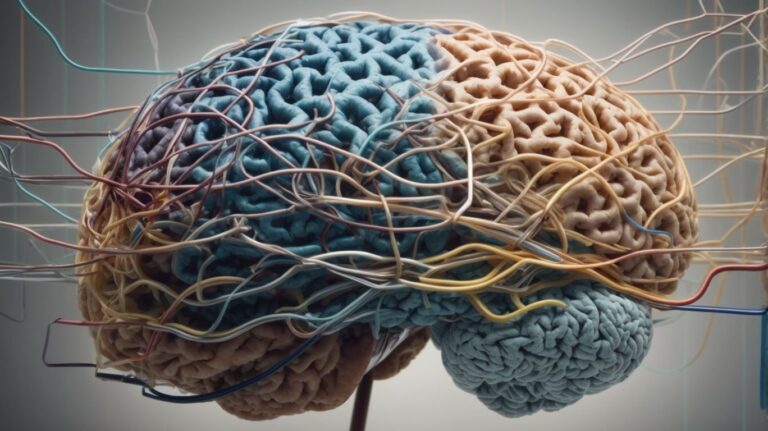Have you ever wondered what psychology is all about and how it shapes our understanding of human behavior? In this article, we will delve into the different perspectives in psychology, including the biological, behavioral, cognitive, humanistic, psychodynamic, evolutionary, cross-cultural, and social-cultural perspectives.
We will also discuss how these perspectives influence our understanding of the nature vs. nurture debate, free will vs. determinism, individualism vs. collectivism, conscious vs. unconscious mind, and the role of biology and environment in behavior. Let’s explore how these perspectives impact the field of psychology and our understanding of the complexities of human behavior.
Contents
- 1 What is Psychology?
- 2 The Different Perspectives in Psychology
- 3 How Do These Perspectives Shape Our Understanding of Human Behavior?
- 4 How Do These Perspectives Influence the Field of Psychology?
- 5 Frequently Asked Questions
- 5.1 What are the main perspectives in psychology?
- 5.2 What do these different perspectives focus on?
- 5.3 Can these perspectives be combined or are they separate entities?
- 5.4 How do these perspectives impact the field of psychology?
- 5.5 Which perspective is considered the most influential in modern psychology?
- 5.6 Do these perspectives have any limitations?
What is Psychology?
Psychology is the scientific study of human behavior and mental processes, encompassing a wide range of research areas focused on understanding the complexities of the human mind and behavior.
Cognitive psychology is a significant branch of psychology that delves into how people process information, solve problems, and make decisions, shedding light on the intricacies of human thought. By examining brain functions and mental health through various methodologies such as experimental studies, observations, and neuropsychological assessments, psychologists gain valuable insights into the mechanisms underlying behavior. Understanding these psychological principles plays a crucial role in addressing mental health issues, improving communication skills, and enhancing overall well-being.
The Different Perspectives in Psychology
In psychology, various perspectives offer unique lenses through which to understand human behavior, including the biological, cognitive, humanistic, psychodynamic, evolutionary, and cross-cultural perspectives.
Each perspective brings a distinct focus to the study of human behavior. The biological perspective delves into the role of genetics, brain structures, and neurotransmitters in shaping behavior.
On the other hand, the cognitive perspective centers on how thoughts, beliefs, and mental processes influence behavior. Humanistic psychology emphasizes personal growth, self-actualization, and individual potential.
The psychodynamic approach, developed by Freud, focuses on unconscious desires and childhood experiences impacting behavior. Evolutionary psychology examines how behaviors have evolved to aid in survival and reproduction.
The cross-cultural perspective highlights the influence of cultural norms, values, and beliefs on behavior, acknowledging the diversity in human behavior across societies.
Biological Perspective
The biological perspective in psychology emphasizes the role of genetics, brain structure, hormones, and other biological factors in shaping human behavior and mental processes.
Genetic influences play a crucial role in determining various aspects of behavior, as individuals inherit chromosomes that carry genes containing instructions for traits and predispositions. These genetic predispositions can impact personality traits, intelligence levels, and susceptibility to certain mental health conditions.
The intricate interactions within the brain also shape behavior, as different regions and structures regulate emotions, decision-making, and sensory processes. Hormonal influences, such as the release of neurotransmitters like dopamine or serotonin, can significantly affect mood, motivation, and social behaviors.
Behavioral Perspective
The behavioral perspective, rooted in behaviorism, focuses on observable behaviors, environmental influences, and the impact of external factors on shaping human behavior.
This psychological approach emphasizes the principles of conditioning, where behaviors are learned through associations between stimuli and responses. According to behaviorism, behavior is largely influenced by the environment and experiences, rather than internal mental processes. This perspective highlights how individuals’ actions are determined by their surroundings and external cues. By studying these observable actions and their environmental determinants, behaviorists seek to understand and modify behaviors to improve individuals’ functioning and overall well-being.
Cognitive Perspective
The cognitive perspective in psychology delves into mental processes such as memory, perception, attention, and problem-solving, emphasizing the role of internal thoughts and cognitive functions in human behavior.
Central to the cognitive perspective is the concept of information processing, which views the mind as a dynamic system that continuously receives, processes, and stores information. Memory storage involves encoding, storing, and retrieving information, shaping how individuals perceive and respond to their environment. The intricate mechanisms of memory formation play a crucial role in shaping one’s cognitive abilities and behaviors, highlighting the deep interplay between cognitive functions and behavioral outcomes.
Humanistic Perspective
The humanistic perspective in psychology emphasizes individual potential, personal growth, and the importance of self-awareness, focusing on human experiences, consciousness, and unique traits.
One of the key concepts within humanistic psychology is self-actualization, which refers to the innate drive for individuals to reach their full potential and achieve personal fulfillment. This perspective takes a holistic approach by considering a person’s overall well-being, including their emotional, social, and spiritual aspects. Client-centered treatments, such as the renowned Rogerian therapy, are central to humanistic psychology, as they prioritize the individual’s subjective experience and place them at the core of therapeutic interventions. Through empathetic listening, unconditional positive regard, and genuine acceptance, therapists foster a supportive environment that encourages self-exploration and growth.
Psychodynamic Perspective
The psychodynamic perspective, pioneered by Sigmund Freud, explores the role of the unconscious mind, unresolved conflicts, and psychological theories in understanding human behavior and mental health.
Freud’s psychodynamic theory delves into the idea that our behaviors are influenced by unconscious desires, memories, and conflicts that shape our personalities. Repression, a key concept in this theory, refers to the unconscious blocking of painful or unacceptable thoughts and memories. These repressed memories often manifest in various ways, leading to psychological distress. To cope with these internal conflicts, individuals may employ defense mechanisms such as denial, projection, or rationalization. Through psychoanalytic therapy, therapists help patients explore these unconscious processes, unraveling the root causes of their psychological struggles.
Evolutionary Perspective
The evolutionary perspective in psychology examines how human behavior and psychological traits have evolved over time through the lens of natural selection, adaptation, and the survival and reproduction of species.
One of the key concepts within evolutionary psychology is the idea that specific behaviors and cognitive processes have been shaped by the demands of our ancestral environments. Adaptive behaviors have allowed humans to navigate challenges and increase their chances of survival and reproduction. This perspective also looks at how genetic influences play a role in shaping behavior, leading to the development of various reproductive strategies that have proven successful over generations. By understanding these evolutionary origins of our psychology, researchers gain insights into the complexities of human behavior.
Cross-cultural Perspective
The cross-cultural perspective in psychology examines how cultural influences, societal norms, and diverse research methods shape human behavior and mental processes across different populations and regions.
Cultural diversity plays a central role in cross-cultural psychology, as scholars analyze how various cultures interact and adapt to different environments. Research methodologies, including observational studies, surveys, and interviews, are utilized to compare and contrast behaviors between different cultural groups. Experts in cultural psychology study how society’s values and beliefs influence individuals’ thoughts and actions, highlighting the importance of context in understanding behavior. The field of cross-cultural psychology emphasizes the significance of comparative analysis in uncovering cultural similarities and differences, shedding light on the intricate interplay between culture and human psychology.
Social-cultural Perspective
The social-cultural perspective in psychology explores how social norms, cultural factors, and educational influences interact to shape human behavior, attitudes, and beliefs within different societal contexts.
By understanding cultural transmission, psychologists can analyze how knowledge, beliefs, and behaviors are passed down through generations within a specific culture.
The concept of socialization plays a crucial role in shaping an individual’s understanding of societal norms and roles, impacting their interactions with others.
Within the educational realm, educational psychology delves into how learning processes, cognitive development, and teaching methods are influenced by cultural practices and societal expectations.
This holistic approach in psychology highlights the intricate web of connections between social factors, cultural contexts, and educational systems in shaping human experiences and behaviors.
How Do These Perspectives Shape Our Understanding of Human Behavior?
These diverse perspectives in psychology offer distinct frameworks for understanding human behavior by exploring the interplay between nature and nurture, free will and determinism, consciousness, and the roles of biology and environment.
The nature versus nurture debate delves into whether genetics (nature) or the environment (nurture) has a greater influence on shaping behavior. This ongoing discussion has led to the acknowledgment that both factors interact to influence behavior. The free will versus determinism argument examines the extent to which individuals have control over their actions or if they are bound by external forces. Understanding this debate provides insight into the complexity of decision-making and behavior.
Nature vs. Nurture Debate
The nature versus nurture debate in psychology examines the extent to which genetic predispositions and environmental influences shape human behavior and development.
On one hand, proponents of the nature argument emphasize the importance of heredity and genetic factors in determining traits such as intelligence, personality, and even mental disorders. Research in the field of behavioral genetics has revealed the impact of genetic variations on behaviors and tendencies.
Conversely, the nurture perspective highlights the critical role of upbringing and environmental experiences in shaping individuals. From childhood experiences to societal influences, the environment plays a significant role in molding behavior and attitudes.
It is the intricate interplay between nature and nurture that truly shapes human behavior. While genetics may provide a predisposition towards certain behaviors, environmental factors can either trigger or suppress these tendencies, resulting in a unique blend of inherited traits and learned behaviors.
Free Will vs. Determinism
The free will versus determinism debate in psychology delves into the philosophical question of whether individuals possess autonomous agency in decision-making or are subject to predetermined influences on their behavior and choices.
In this enduring debate, scholars and thinkers have grappled with the complexities of volition and causality that underpin human actions. At the core of this discourse lies the examination of consciousness and its role in shaping cognitive processes.
While some argue that our choices are purely a result of external determinants, others advocate for the capacity of individuals to exercise agency and make decisions autonomously. This discussion extends beyond the realms of psychology, touching upon ethical considerations regarding moral responsibility and accountability in the face of conflicting worldviews and theoretical frameworks.
Individualism vs. Collectivism
The individualism versus collectivism debate in psychology contrasts the emphasis on personal autonomy, goals, and independence in individualistic cultures with the focus on community, harmony, and shared values in collectivist societies.
Individualistic cultures, prevalent in Western societies, often prioritize personal achievements and individual rights, encouraging self-expression and pursuing one’s aspirations without heavy influence from the collective group.
In contrast, collectivist cultures, commonly found in Asian and African societies, place greater value on the interconnectedness of individuals with their families and communities, valuing cooperation, loyalty, and group success over personal gains.
Conscious vs. Unconscious Mind
The conscious versus unconscious mind debate in psychology examines the interplay between accessible awareness and hidden motivations, drawing insights from Freud’s psychodynamic theories and cognitive processes.
Freudian concepts highlight the significance of the unconscious mind, suggesting repressed thoughts and desires influence our behavior without our conscious awareness.
Repression, a key element of Freud’s theory, involves pushing distressing memories or impulses into the unconscious mind to avoid experiencing discomfort. This process plays a pivotal role in shaping one’s personality and responses to various stimuli. The ego, as per Freud, acts as the mediator between the conscious and unconscious, seeking to balance instinctual drives with societal norms.
Role of Biology and Environment in Behavior
The role of biology and environment in behavior examines the intricate interplay between genetic predispositions, brain functions, and environmental factors in shaping human behaviors and cognitive processes.
This interplay occurs through a complex network of neural pathways that transmit signals and regulate various physiological and cognitive functions. Environmental determinants such as upbringing, social interactions, and exposure to stimuli greatly impact these pathways, influencing behavior and cognition. Genetic expression plays a crucial role in determining how individuals respond to environmental stimuli, as different genetic variations can influence susceptibility to certain behaviors or mental health conditions. Understanding the intertwined nature of these factors is essential in comprehending the multifaceted origins of human behavior.
How Do These Perspectives Influence the Field of Psychology?
These diverse perspectives significantly influence the field of psychology by shaping research methodologies, educational approaches, career paths, and the continual development of knowledge in understanding human behavior.
The psychodynamic perspective, for example, focuses on the role of unconscious drives and conflicts in behavior. This viewpoint has led to innovative therapeutic techniques such as psychoanalysis.
In contrast, the behavioral perspective emphasizes observable behaviors and the impact of conditioning on human actions. This approach has been influential in areas like behavior modification and applied behavior analysis.
The cognitive perspective, on the other hand, delves into mental processes like thinking, memory, and problem-solving, contributing to advancements in cognitive therapy and neuroscience.
Biopsychology considers the biological basis of behavior, exploring how genetics, the brain, and neurotransmitters influence our actions and emotions.
Frequently Asked Questions
What are the main perspectives in psychology?
The main perspectives in psychology are behavioral, cognitive, biological, humanistic, psychodynamic, and sociocultural.
What do these different perspectives focus on?
Each perspective focuses on different aspects of human behavior and mental processes. For example, the behavioral perspective emphasizes observable behaviors, while the cognitive perspective looks at how our thoughts and perceptions influence behavior.
Can these perspectives be combined or are they separate entities?
While each perspective offers a unique understanding of human behavior, they can also be combined to provide a more comprehensive view. Many psychologists use an integrated or eclectic approach, drawing from different perspectives to better understand their clients.
How do these perspectives impact the field of psychology?
The different perspectives in psychology offer diverse approaches to studying and treating mental health and human behavior. They provide a foundation for research, therapy, and understanding the complexities of the human mind.
Which perspective is considered the most influential in modern psychology?
It is difficult to determine which perspective is the most influential, as each has contributed significantly to the field of psychology. However, the cognitive perspective, which focuses on mental processes such as memory, perception, and problem-solving, has had a significant impact on modern psychology.
Do these perspectives have any limitations?
Yes, each perspective has its limitations and may not fully explain all aspects of human behavior. For example, the behavioral perspective does not take into account internal mental processes, while the psychodynamic perspective places strong emphasis on unconscious conflicts and childhood experiences.






